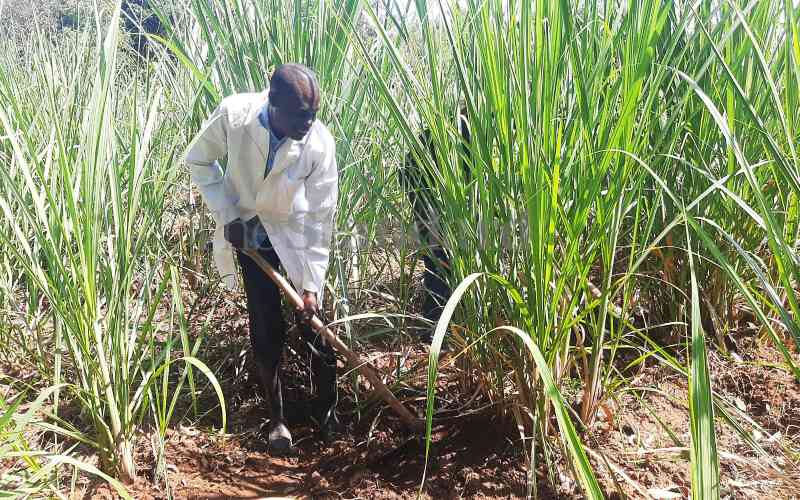×
The Standard e-Paper
Join Thousands Daily

Patrick Mudialo, 48, at Lunganyiro area Matungu Constituency Kakamega County is doing his third weeding ready for his sugarcane harvest in the next two months.
Mudialo is a devastated farmer following the Agriculture Food Authority's (AFA) decision to suspend cane production for four months due to cane shortage despite having already planted his cane before the suspension.